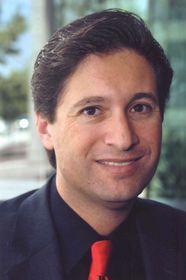LOS ANGELES, CA--(Marketwire - Feb 22, 2012) - Family Law matters, such as divorce and child custody, should not be decided in a courtroom, according to Family Law Attorney and Mediator Mark Baer. Instead, he says mediation and other forms of consensual dispute resolution should be the first choice in family law disputes. This is the norm for Family Law matters in Australia, England, Wales and Ontario, Canada. Using conflict resolution instead of litigation has helped reduce the backlog of court cases, drastically reduced costs for parties in divorces, reduced the damage to families and most importantly, has helped curb the growing cycle of violence in custody cases.
"We've recently seen violence escalating in child custody cases in the U.S.," says Attorney Baer. "When you have a judge deciding the fate and the outcome of child custody, spousal support, or any other family law issues, there is always a chance of a person's bias tainting how they choose to apply the law. Despite how skilled a judge is and how dedicated they are to the legal process, when a final decision is made, much of what happens comes down to that person's life experiences, values, and biases.
"As a Family Law attorney, I can tell you that it is virtually impossible to have factual findings or decisions made within the realm of judicial discretion in Family Court overturned on appeal. Outcomes will vary from judge to judge and from one court to the next -- even within the same courthouse -- based upon a particular judicial officer's credibility findings, factual findings, and judicial discretion."
According to the California Code of Judicial Ethics, "A judge shall perform judicial duties without bias or prejudice." It is generally agreed that anyone involved in a lawsuit has the right to have their case decided by a judge who is capable of applying the law in a fair and objective manner. However, a judicial officer notes that, "Judges are trained to be sensitive to problems of bias; regardless, one does not undergo an instantaneous transformation from whatever one may have thought or believed as an attorney just by being sworn in as a judge or commissioner."
For instance, Baer states, "If a judge got divorced and had to pay what they determined to be excessive child support to a spouse, it would be very difficult to be unbiased when dealing with this situation for others in their courtroom. Similarly, if a judge has a child who they feel did not receive enough child support or spousal support to meet their financial needs, they might be overly generous in making such awards -- to the extent possible under the law."
Knowing this, he points out that attorneys routinely try to determine in advance whether the judge assigned their case is biased for or against their particular client. "In Family Law matters, they select custody evaluators whom they hope are biased in favor of their clients," says Attorney Baer. "This bias will impact a judge's findings, which in turn, will impact how they opt to apply the law."
He says this opportunity for bias exists in no other area of law to the extent that it does in Family Law and notes that no amount of bias elimination training will make a judge forget about their life experiences, assumptions, personal beliefs, and values.
Given the essential defects in the litigation system, Attorney Baer cautions those who use the court system for Family Law matters to explore litigation alternatives such as mediation or collaborative divorce, which do not rely on the decision-making process of a single person whose opinions and experiences can and do impact families' lives.
Mark B. Baer is a Family Law Attorney/Mediator/Collaborative Law Practitioner who has practiced law in Los Angeles for over twenty years with an office in Pasadena, CA. His firm represents individuals on issues regarding family law, divorce, child custody, child support, spousal support, restraining orders, paternity actions, or domestic partnerships. For more information, please visit: www.markbaeresq.com
Contact Information:
For more information, please contact:
Mark B. Baer, Esq
(626) 389-8929
E-mail:
